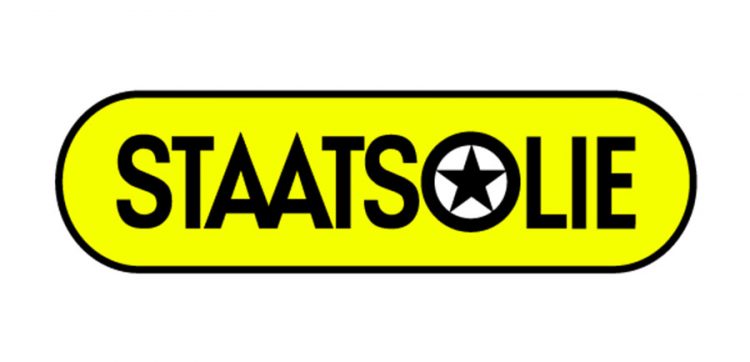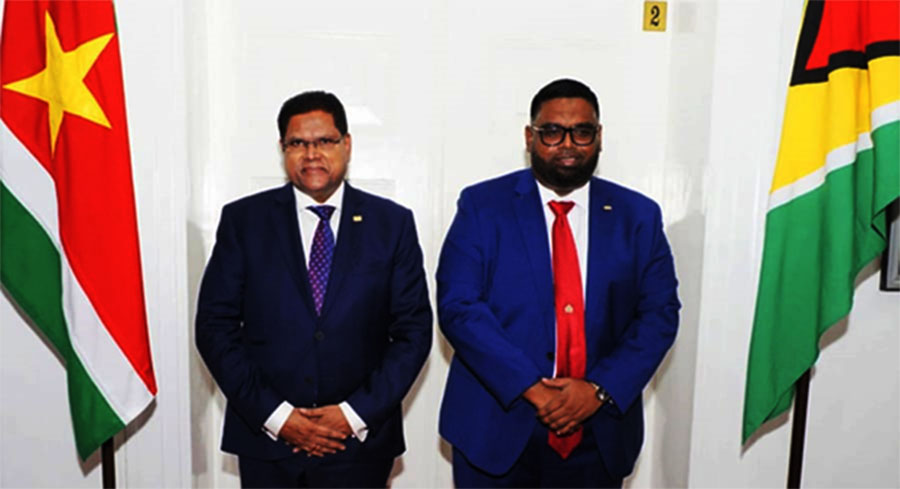Not too many Guyanese are likely to forget what in recent times, was by far the highest point in relations between Guyana and neighbouring Suriname when presidents Irfaan Ali and Chan Santokhi were either showing up in each other’s capitals, or else, otherwise making the point to the rest of the world about their oil ‘fortunes’ and how these would become the catalyst for the transformation of bilateral relations which, up until then, had been characterised by a discomfiting prickliness deriving mainly from the age-old Corentyne River dispute. If this has endured as an issue between the two countries, the circumstances in both Georgetown and Paramaribo had converged sufficiently to allow for a setting aside of the river dispute and anchoring bilateral relations to the mutual likelihood of such relations being set on a much more convivial path.
In that context, presidents Irfaan Ali and Chan Santokhi, can be credited with the embarkation of a high-level diplomacy journey which, potentially, could alter the timbre of relations between the two countries.
 Over a relatively brief period the circumstances have changed significantly.
Over a relatively brief period the circumstances have changed significantly.
Whereas Guyana now enjoys the privilege of being the ‘toast’ of the international community and now relishes, for the first time in its post- independence routine, positive media attention on account of its ‘oil fortune,’ not so Suriname. What is perhaps seen at home are too-long delayed returns from the country’s still inaccessible oil fortune and the persistence of the socio-economic challenges which both the government and the populace might have thought, would by now at least, been partially behind them as episodes of social and political jitteriness have been in evidence recently.
If there is evidence that the radar of the government in Paramaribo is seemingly, firmly fixed on advancing its oil recovery undertakings to a point where that pursuit can yield real dividends, there is also evidence of incremental pressure from the private sector to take action that will at least remove the unmistakable ‘scowl’ from the faces of ordinary Surinamese and from the country’s economy.
Nor does the presence of a neighbouring country that appears to be ‘getting on’ with using its own oil fortune to transform what, not too long ago, had been considered by sections of the international community to be a near ‘lost cause’, give Paramaribo reason to strike an upbeat posture.
Even now, the Santokhi administration would appear to be under pressure from the country’s private sector to “diversify the economy by carrying out radical reforms,” according to a release on the ‘mood’ in the country seen by the Stabroek Business. The private sector has reportedly been urging its government to “downscale bureaucracy, streamline the business registration process and give more access to financial resources for small and medium enterprises (SMEs).”
Suriname’s current ‘tough times’ have also been manifesting itself in the public space where there is evidence that the returns from reforms cannot compensate for oil ‘wealth’ that is yet to metamorphose into real economic growth and material gains for ordinary Surinamese.
While a recent report credits the government’s digitisation programme with creating “new opportunities in the IT-enabled global services sector,” it adds that “attracting foreign investment would require the government to spend money on infrastructure” as well as initiate the “launching of skills development programmes,” according to Rekha Bissumbhar, the Chair of VSB, an influential private sector advocacy organisation in Paramaribo.
What, up until now, has been the differing fortunes of the two neighbouring countries in terms of being able to transform oil resources into visible growth-related undertakings, has resulted in the seeming slowing down in both Georgetown and Paramaribo ambitious of joint development undertakings, which, for now, at least, would appear to have been discreetly shifted to the bilateral ‘back burner.’





